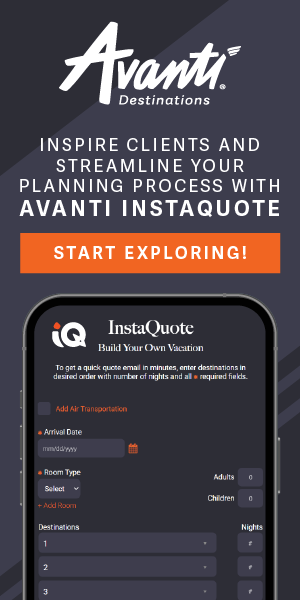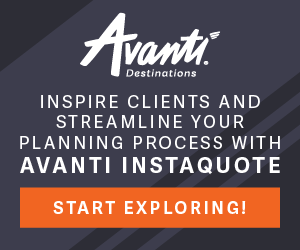ASTA Wants Its Members to Know Which Suppliers Pay Timely Commissions
by Daniel McCarthy
The opening of this year's ASTA Global Convention.
Tuesday officially kicked off the Global Convention for the American Society of Travel Advisors (ASTA), the group’s annual gathering, which takes place this year in San Juan, Puerto Rico.
ASTA estimates 1,000 advisors came to Puerto Rico for this week’s Global Convention, a number that shows the recovery, and the increasing strength, of the U.S. travel agency community. Ahead of Wednesday’s opening general session, ASTA’s team joined press to update on its priorities for the rest of 2023 and into 2024, including a push for a major change in how advisors have been treated by suppliers, and new advocacy items for its team.
Commission Payment Timing Changes
In a new statement, endorsed by ASTA’s consortia committee which met early on Tuesday morning, ASTA recognized the suppliers who are paying commission within 30 days of final payment, something that has long been pushed for by individual travel advisors.
“We recognize these suppliers for timeliness of commission payments within 30 days of final payment, we encourage all suppliers to adopt this practice,” the statement reads, according to ASTA president and CEO Zane Kerby.
That statement comes after ASTA’s move to encourage professional fees amongst its members last year, a major, bold change for ASTA at the time. While that was putting the onus on advisors to further the profession (upwards of 92% of all ASTA members are now charging fees according to Kerby), this year’s statement aims to do the same by making advisors aware of what suppliers are operating with their partners in mind.
ASTA fully intends to publish the list of suppliers who are paying within that 30-day timeframe but hasn’t made it available just yet. Some suppliers, such as Explora Journeys and Collette, are already doing so.
“We want to highlight this good behavior, and those who are acting like true partners,” Kerby said on Tuesday. “The principle is once you get paid, we should get paid, too.”
Corporate Traveler Discrimination
Corporate travel is still very much lagging behind the leisure recovery, and while business behavior is playing a role in that, discrimination in fares for business travelers isn’t helping.
Kerby said that ASTA has had discussions with the Department of Transportation (DOT) about what he called “extraordinary” price discrepancies in American Airlines fares displayed in Concur, where the majority of advisors are booking corporate travel, and everywhere else.
According to Kerby, the pricing goes anywhere from 20% or 30% more to up to 120% more on Concur. That includes pricing in OTAs and in new NDC. The only place, Kerby said, that travelers are finding the discrepancies is through Concur.
ASTA brought the issue to the DOT and is now “hoping that regulators in Washington will take a real look at this.” Even if nothing comes from that, ASTA is also pursuing it with the Department of Justice because “we feel these are discriminatory practices that we don’t think are fair to travel advisors.”
New to Industry Mentor Program
With some help from Norwegian Cruise Line, ASTA is about to embark on a campaign to attract new advisors into the industry. The campaign market the profession with simple messages—unlimited potential for income, work from anywhere, and more.
Several thousand people have already downloaded the program overview on ASTA’s website, which Kerby said is “really, really good news.”
ASTA expects to drive that program even further with help from Norwegian Cruise Line (ASTA had started the program on a smaller scale with its own budget).
New Educational Tools
“We are we’ve really dusted off and looked at our programs in terms of what we offer and we were aiming to have a clear pathway from start to finish that is always clear to the students in terms of what the next step is, as they ultimately seek to become hired if you will by a travel agency or work with a host, consortium, etc.,” Mark Meader, the Senior Vice President Industry Affairs & Education said. .
The education for new-to-the-industry, or potential new-to-industry, advisors starts with an overview of how to become a travel advisor, a free PDF tool available for those interested through ASTA’s website. That is meant to assess someone for their ability and interest in the career.
Then, there’s ASTA’s Roadmap to Becoming a Travel Advisor, a paid course that cost $199 that includes their first year of membership in ASTA.
According to Meader, the Roadmap course is “really meant to be very fundamental in terms of what it provides. And it looks holistically at any kind of travel agency, any host or consortia in terms of, if you will, the baseline foundational needs. It’s quite all-encompassing, but it is not specific to a particular host or specific agency.”
Instead, it’s meant to be a precursor to what a host agency would provide to a new advisor. ASTA is including four new modules in that program, including one on corporate travel, which Casto said has been missing, along with modules on W2 employees, the IC host, and a completely independent IC.
The aim is to “continuously ensure” that new advisors know what the next step is in their careers—giving them the specific guidance they need to ensure they meet the goals they set out to accomplish when they were getting into the industry.
“What if I’m a student, I want to know what do I do next? What’s my next opportunity? So we will always be pointing them in that direction.” Meader said.
That goes along with a new formal mentoring program for members looking for a mentor to help them grow their careers and build relationships. The pilot program for that is already in place with 10 mentors and 10 mentees. The pilot will run for six months, with ASTA pairing the two together based on needs. Registration for both is still open—it will close on May 19.
Executive Committee Update
Marc Casto, the senior vice president of Flight Centre and chair of the ASTA board, will stay on the board for another year but will no longer serve as chair. Jackie Friedman, who ran unopposed for ASTA chair, will take over at the conclusion of the Global Convention.
Casto reflected on his tenure as chair during Tuesday’s press conference, saying that ASTA was on track to meet the goal of 20,000 paid and unpaid members by the year 2025, one of three goals he set out when he joined the board.
He also reflected on creating ASTA’s first-ever sustainability award, which recognizes parties who “actually had made tangible efforts to improve our industry and community,” creating the net-zero goal by 2030, and the work he and his team did over COVID-19, which was perhaps the most challenging time in history for ASTA.
“I’m very, very excited with the progress that has taken place with ASTA. I’m ecstatic to know that it’s going to be even better hands than where it was left, that’s when, as always hopes and the full knowledge that we are very much on the path to continued growth and continued success,” he said.
Friedman added that the 2025 membership goal will also drive her tenure.
“We have to grow our association, there should be no excuse for a travel advisor or a supplier for that matter, to not support our trade association,” she said.
Advocacy Efforts
ASTA’s Eben Peck gave an update on what the association is doing right now when it comes to its advocacy work.
The FAA Authorization Bill, which expires at the end of September and is being written right now, is one focus. ASTA is focusing on three pieces of the bill and meeting with committee members to make them aware—airline refunds (travel agencies should not have to pay out of pocket for a canceled flight), getting a seat on the Advisory Committee for Aviation Consumer Protection within the DOT, and consumer disclosures, which have been a pain point for advisors.
Those disclosures include ancillary fare disclosures, which could come out as early as April 2024.
ASTA is also gearing up for its Legislative Day next month and continuing its fight for advisors during NDC adoption, which has caused a major change in the industry.
























